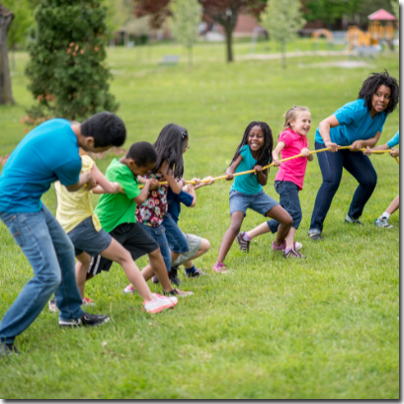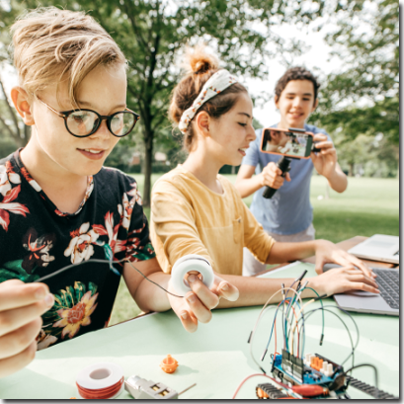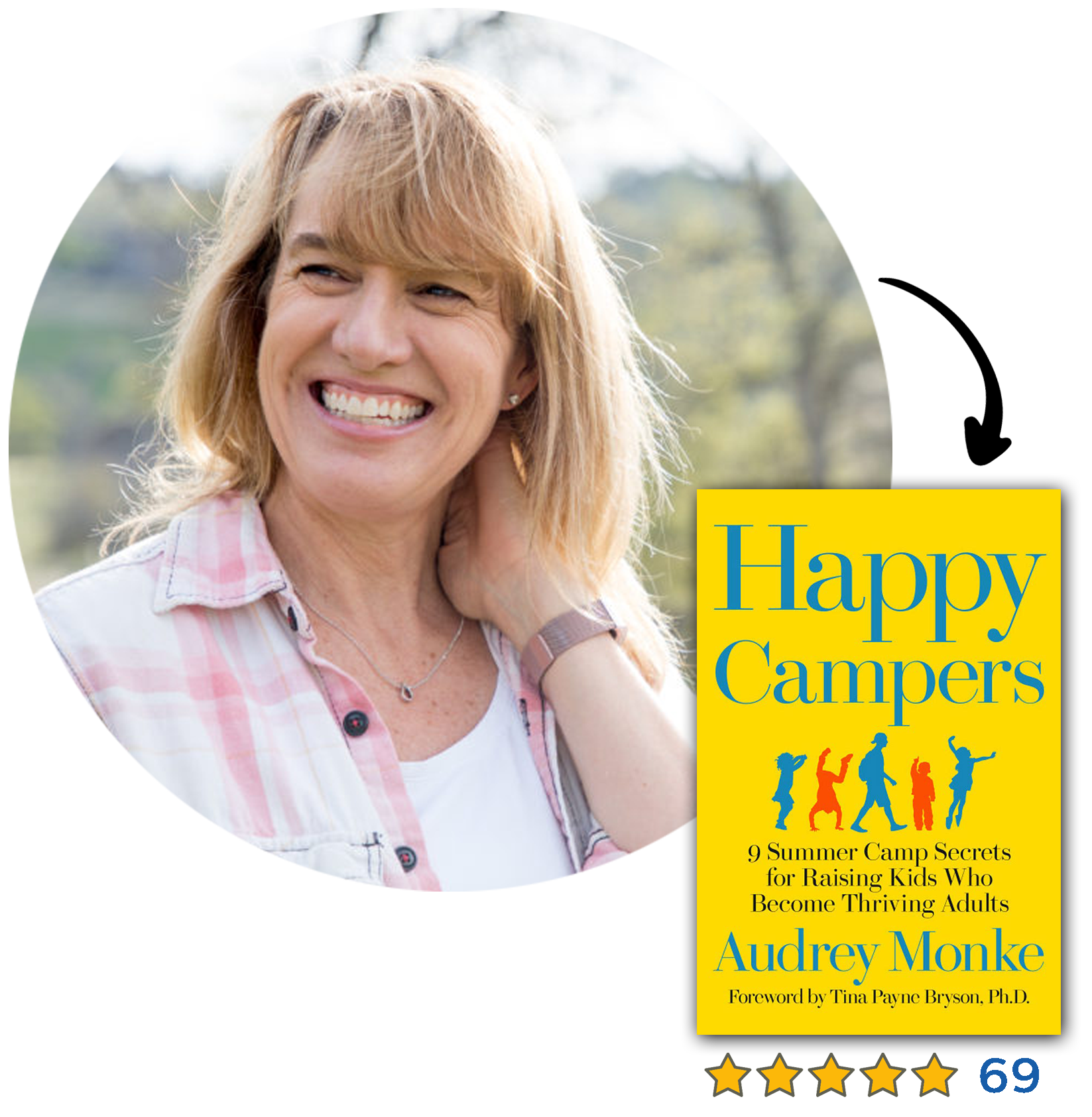 It’s not long now until the launch of the 2022 Positive Parenting Conference! Many years ago, this was the conference that overhauled my parenting style, giving me the confidence and tools to help my family thrive. I’m excited to hear from more experts and to get more practical parenting gems of advice.
It’s not long now until the launch of the 2022 Positive Parenting Conference! Many years ago, this was the conference that overhauled my parenting style, giving me the confidence and tools to help my family thrive. I’m excited to hear from more experts and to get more practical parenting gems of advice.
As a member of the AFineParent Academy, I was thrilled when it was announced that we’d get early access to the masterclasses, well before the conference. One of the masterclasses we got early is this inspiring session with Audrey Monke. Audrey is mother to five children and an adored Camp Director with over 30 years of experience working with thousands of children, young adult staff, and parents.
Her book, Happy Campers: 9 Summer Camp Secrets for Raising Kids Who Become Thriving Adults, shares a wealth of research and practical tips to bring the joys of summer camp into everyday life. It was a pleasure listening to someone who clearly believes and practices the wisdom she shares.
While Audrey shared many great ideas in her Camp-Inspired Parenting Masterclass, what really stood out to me was her insight around connection, kindness and grit. Not only does she teach us why these areas are so important, but she also shows us how we can all build these skills in our families.
Here are my 3 key takeaways from this masterclass –
#1: Connection Comes First
 Audrey explains that creating a close and connected family culture that promotes positive, lifelong relationships is the most important thing we can do for our children. We want our children to feel like they belong; that they are valued, appreciated and accepted for who they are, no matter how they perform on that math test or in that soccer game.
Audrey explains that creating a close and connected family culture that promotes positive, lifelong relationships is the most important thing we can do for our children. We want our children to feel like they belong; that they are valued, appreciated and accepted for who they are, no matter how they perform on that math test or in that soccer game.
I was fortunate to have been raised in a loving family environment and have close relationships with my parents. I know how that support has allowed me to prosper, so it’s an area I am keen to replicate with my own children.
Nevertheless, sometimes it can feel more natural to correct and direct rather than connect. To foster closer connections, Audrey highlights the importance of connecting face-to-face and gives us a number of practical tips on how to do this.
One of my favorite suggestions that Audrey shares is to give our children two minutes of mindful attention every day, during which they run the show. The concept of special time can sometimes feel overwhelming when you have multiple children and a busy household to run, but everyone can carve out two minutes for each child. Audrey emphasizes that it doesn’t really matter what you do or say, it’s all about allowing the child to lead so they feel seen and important.
Additionally, structure helps children feel safe and family rituals help families feel connected. Audrey suggests daily family sharing of highs, lows and “woahs” (a woah could be something learned or something fascinating the person sharing experienced that day).
Audrey also suggests building in various connection and safety points throughout the day. For example, bedtime may be a time in which parents can “check-in” with their child; or for families with regular commutes in the car, those car rides may be a great check-in opportunity. If this happens every day during the same time, our children will come to expect this as a time to share anything on their mind that they did not want to discuss around the dinner table.
As a result of listening to the masterclass, I’ve incorporated mindful attention into my own family’s day and have focused on catching my daughters doing something right. It’s often so easy to see what needs improvement, but taking time to highlight positive acts and progress helps our children feel seen and appreciated.
#2: It’s Cool to be Kind
 Audrey wrote her book to help parents raise kind, gritty and independent kids. Her focus on kindness struck a chord with me as it is often an area overlooked. If you are anything like me, you know you want to raise kind kids, but teaching this can feel a bit abstract.
Audrey wrote her book to help parents raise kind, gritty and independent kids. Her focus on kindness struck a chord with me as it is often an area overlooked. If you are anything like me, you know you want to raise kind kids, but teaching this can feel a bit abstract.
This is illustrated in a study that Audrey discusses, in which 80 percent of the 10,000 children sampled said their parents thought their grades were more important to them than being kind. When parents of the same kids were surveyed, it was found that it was actually the other way round, with 80 percent of parents actually seeing kindness as more important than academic success.
The masterclass discusses how kindness enables us to thrive and in turn, our lives feel more abundant. Audrey shares a number of ideas on how to teach kindness, focusing on our own modeling of kindness. She also shares how important it is for parents to explain what we are doing to our children, when we engage in acts of kindness. “My friend is sad at the moment because her cat died, so I’m sending her a card.”
In addition to modeling, we can also call out the kind acts that our children make to prove how valuable kindness is to us. “I saw that you shared your favorite toy with your sister today, that was very kind of you.” A family challenge of engaging in random acts of kindness may be another fun way of encouraging kindness; from smiling at a stranger to checking in on someone who has been quiet recently.
Since listening to the masterclass, I have been more intentional about pointing out kind acts and modeling this for my children- such as smiling and saying hello to a short-tempered neighbor. My family has incorporated this into our day by talking about the kind things we have done that day in the car, on the way home from school.
#3: Grit is Grown Outside the Comfort Zone
 The third takeaway from this masterclass for me is all about growing grit. Grit allows children to use their internal resources when things are hard. It is a term many of us may have heard, but Audrey shares many ways we can grow this important skill.
The third takeaway from this masterclass for me is all about growing grit. Grit allows children to use their internal resources when things are hard. It is a term many of us may have heard, but Audrey shares many ways we can grow this important skill.
One of my biggest parenting challenges is fighting my mamma bear instinct of diving in to save my children whenever I see them struggling. I’m aware that bubble wrapping them isn’t good and that children need to feel challenged in order to grow- but boy is it hard to sit back sometimes!
Audrey talks about how everyone has three zones of learning: a comfort zone, where they feel safe; a growth zone, where something feels hard but achievable, and a black out zone, where the body goes into flight or fight. Everyone’s zones are different sizes so with a more hesitant child, it can be important to practice baby steps so they are stretched but not overwhelmed.
Goal setting can help children expand their worlds in a safe but challenging way; and allowing our children to share the new things that they would like to have a go at this year can be a positive way to encourage goal setting. We can also share our own stories of grit and how we kept going even when we found something difficult. It can also be helpful to remind our children of something they had to work at to achieve success in the past, such as riding a bike or swimming.
This masterclass made me realize the importance of tolerating those difficult emotions of frustration and upset when something doesn’t go right. It’s hard to witness as a parent, but it’s good for our children. The famous phrase ‘if at first you don’t succeed, try try again’ springs to mind!
This masterclass is jam packed full of wisdom, practical tips and concrete suggestions to encourage building connections with our children while helping them to become more independent. Although I was asked to choose three takeaways, I could have written at least ten! I hope you will join us in watching Audrey Monke’s Camp-Inspired Parenting Masterclass during the Positive Parenting Conference.
 You can watch the full Camp-Inspired Parenting Masterclass with Audrey Monke for FREE during the online Positive Parenting Conference between May 17th – 24th, 2022. Each year 100,000+ parents join us for this amazing online event. Don’t miss it!
You can watch the full Camp-Inspired Parenting Masterclass with Audrey Monke for FREE during the online Positive Parenting Conference between May 17th – 24th, 2022. Each year 100,000+ parents join us for this amazing online event. Don’t miss it!
Up Next…
Do you worry about the impact your child’s screen time may have on their development, yet struggle to take it away completely?
You’re not alone!
Join us next week as we discuss key takeaways from the Screen Kids Masterclass with Arlene Pellicane. This informative masterclass is packed with insights about the impact of screens on our childs’ brain, the importance of teaching relational skills in a technology driven world and a whole bunch of practical tips on how to do it.
See you next week!
Leave a Reply